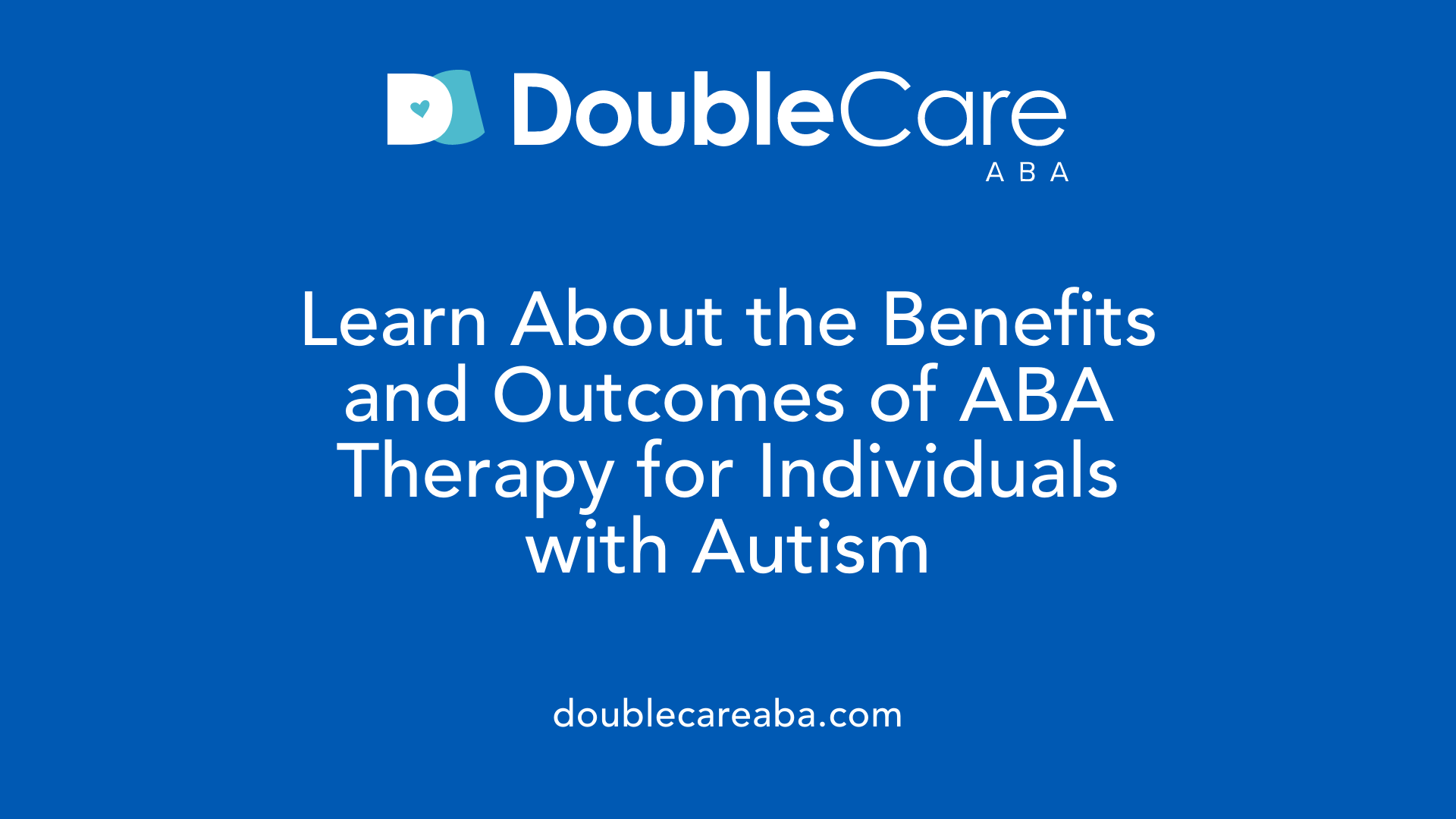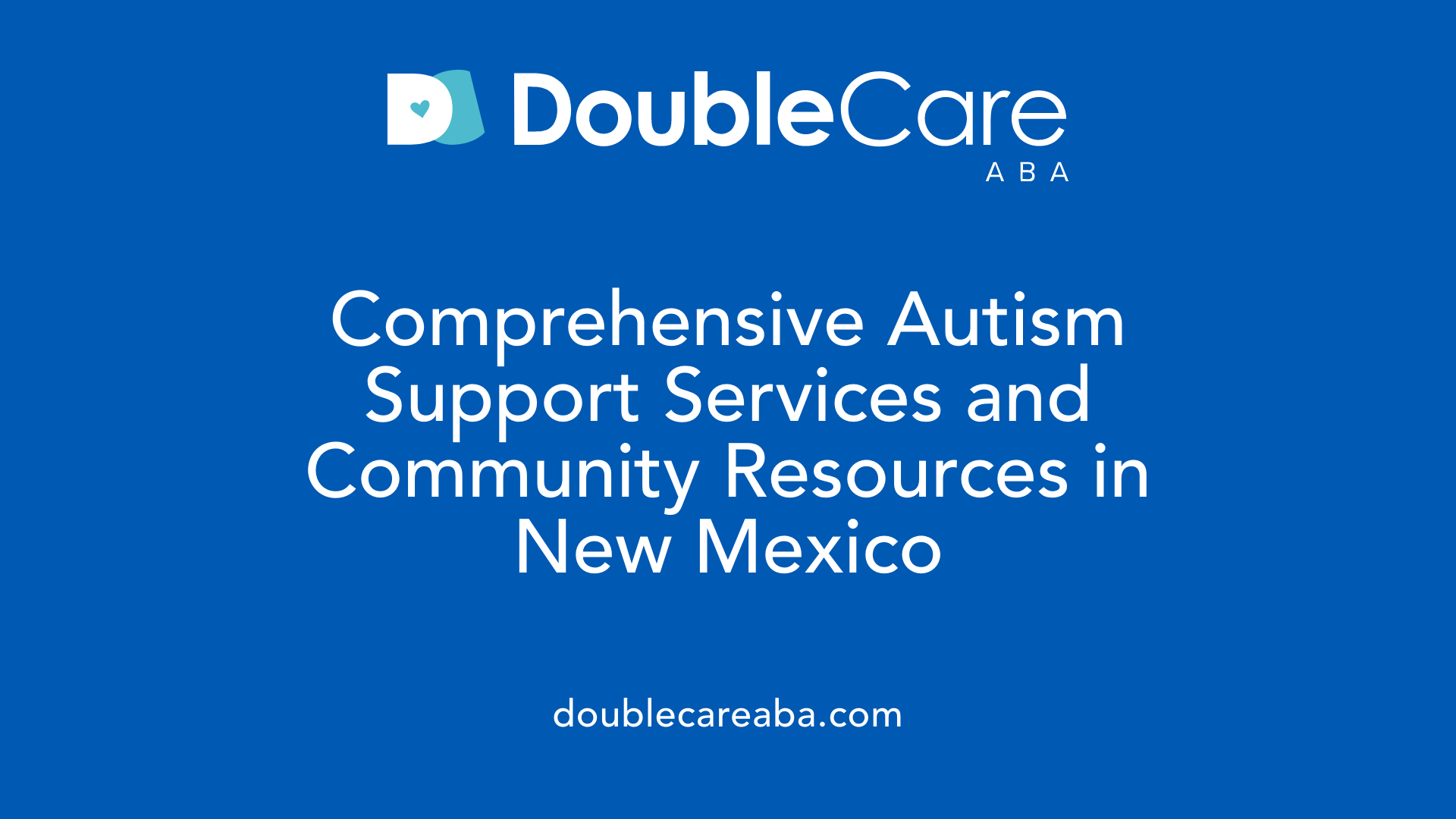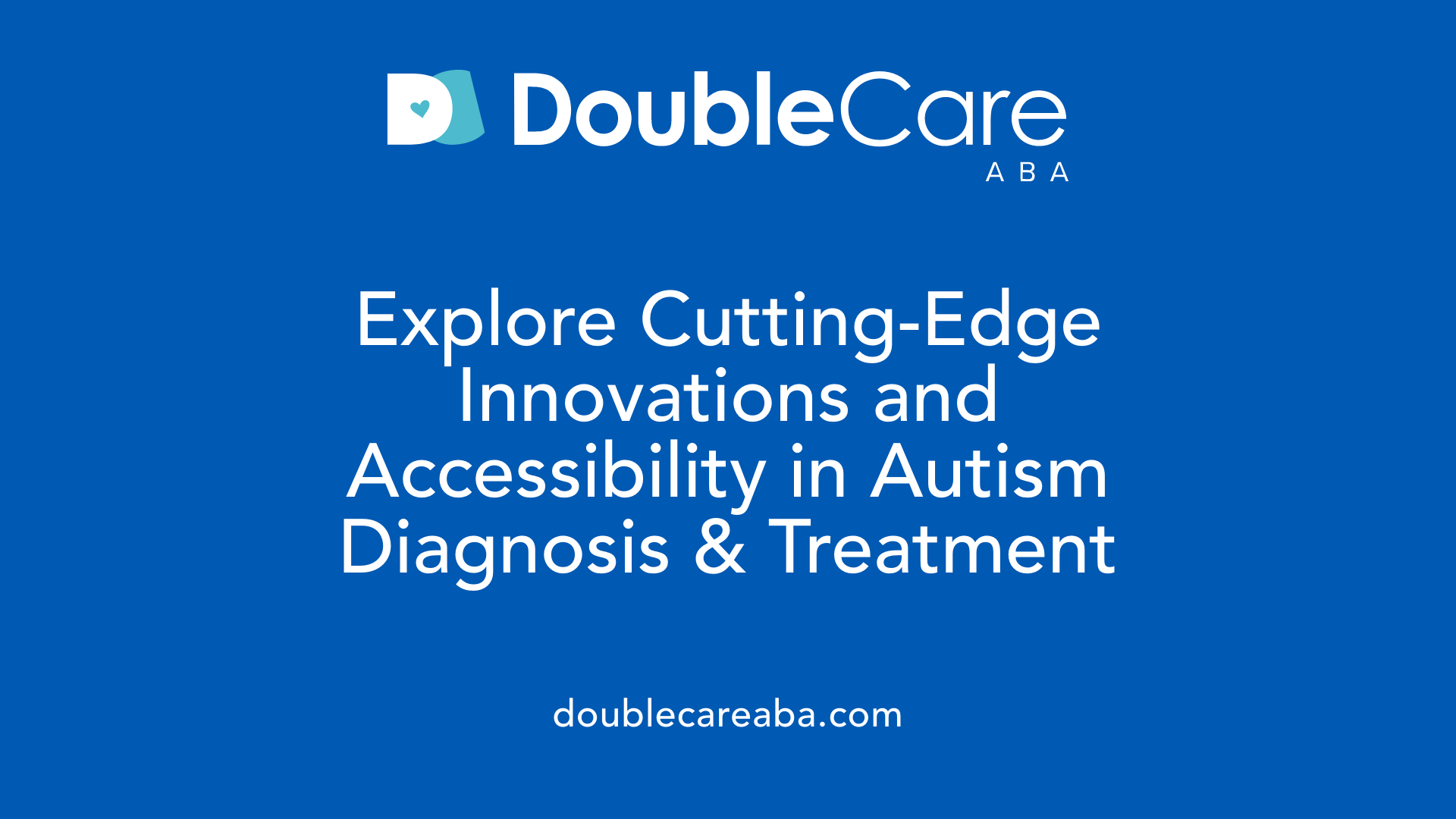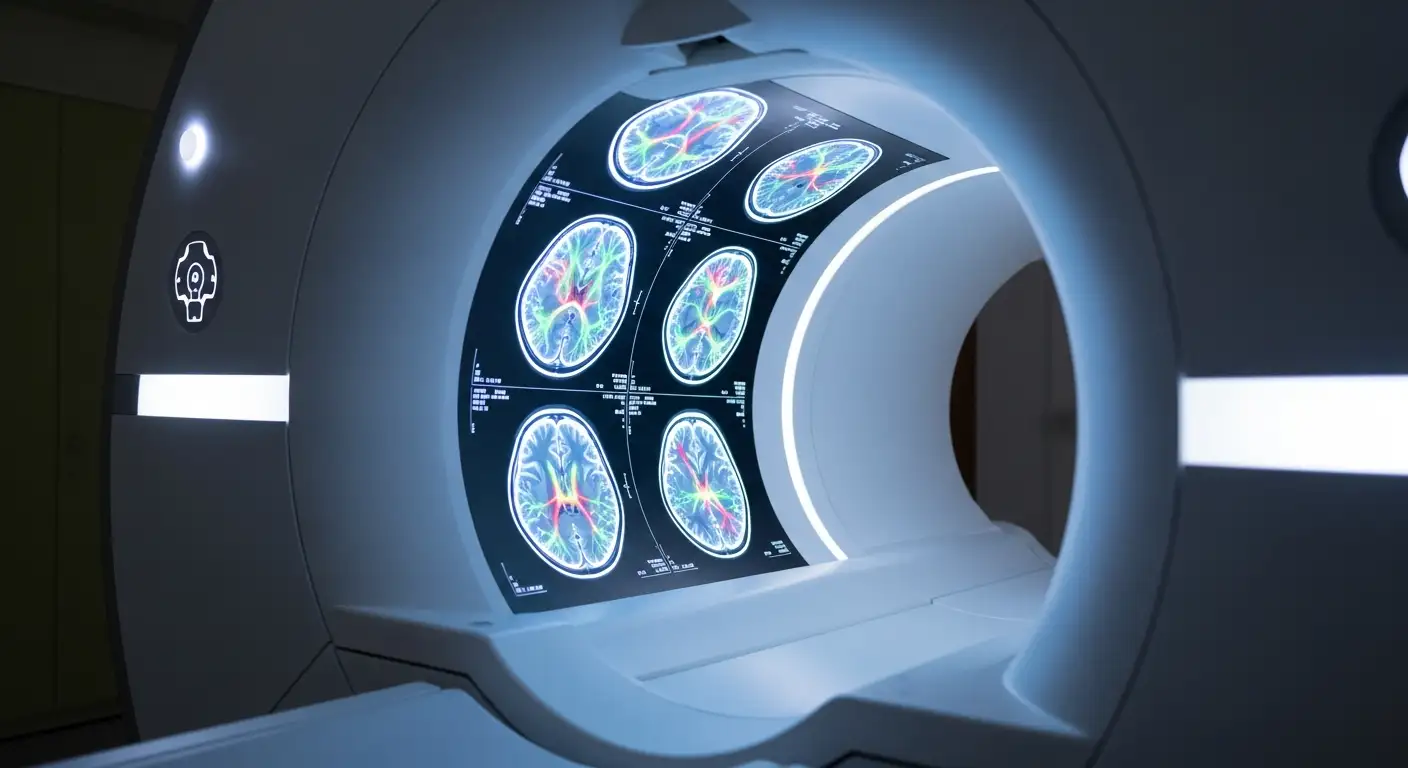Understanding Autism Support in New Mexico
Families and individuals affected by autism in New Mexico have access to an extensive network of resources and specialized services designed to address diverse needs. From cutting-edge therapies and early interventions to educational and recreational programs, the state offers a supportive environment aimed at improving quality of life and promoting independence for those on the autism spectrum. This article explores key autism resources available across New Mexico, focusing especially on Applied Behavior Analysis (ABA) therapy and related supports.
An Overview of ABA Therapy: Principles and Practices in New Mexico

What is Applied Behavior Analysis (ABA) therapy for autism?
Applied Behavior Analysis (ABA) therapy is a common and effective approach aimed at improving important skills in individuals with autism. It focuses on enhancing communication, social abilities, learning, and everyday living skills while working to reduce behaviors that may be harmful or disruptive.
Evolution of ABA therapy methods
Since its inception in the 1960s by Dr. Lovaas, ABA therapy has evolved significantly. Early models sometimes used harsh techniques, but today's ABA strictly embraces positive reinforcement. Therapy sessions are now more engaging, incorporating naturalistic and play-based methods to better match the child’s interests and daily environment.
Tailoring ABA therapy to individual needs
In New Mexico, ABA services like those offered by MECA Therapies, Camino ABA, and others prioritize customizing therapy plans to fit each child’s unique needs. Assessments conducted by Board Certified Behavior Analysts (BCBAs) ensure that programs focus on measurable improvements in communication, social skills, and independence. Flexible care options, including in-home, virtual, and clinic-based therapies, help reach families across urban and rural communities.
Current emphasis on positive and respectful approaches
Today's ABA therapy in New Mexico places strong emphasis on respect and positivity, aiming to empower children within a neurodiverse framework. Caregivers are involved through parent and family training to reinforce progress beyond sessions, ensuring a holistic support system.
ABA therapy in New Mexico not only advances skill development but also respects each child's individuality, promoting their participation and quality of life throughout the therapy process.
Benefits and Measurable Outcomes of ABA Therapy for Individuals with Autism

How does ABA therapy benefit individuals with autism?
ABA therapy provides a scientifically supported framework that helps individuals with autism develop essential life skills such as dressing, toileting, and eating. Providers like MECA Therapies and Camino ABA in New Mexico create personalized treatment plans tailored to each child's unique strengths and needs. These plans emphasize early intervention, as starting ABA before age six leads to better social, communication, and expressive language outcomes. Techniques commonly used include positive reinforcement and visual aids, which enhance social interactions and communication abilities.
ABA also targets the reduction of problematic behaviors and teaches children how to manage emotions and develop healthy coping skills. Therapy is offered flexibly through in-home visits, clinics, and telehealth, supporting families across various communities, including rural and underserved areas.
Additionally, ABA often integrates with other therapies such as speech-language and occupational therapy, creating a comprehensive support system that fosters greater independence and a higher quality of life for individuals on the autism spectrum.
How is the progress of an individual measured during ABA therapy?
Progress in ABA therapy is closely monitored by collecting data on targeted behaviors and skill acquisition during therapy sessions. Board Certified Behavior Analysts (BCBAs) conduct in-depth assessments, including caregiver interviews and direct observation, to track improvements. The collected data is compiled into detailed progress reports that illustrate changes in behavior frequency, skill mastery, and goal achievement over time.
Technological tools, including digital phenotyping and machine learning—as utilized by providers like FronteraCare—enable more accurate and continuous tracking of progress. This systematic data collection allows therapists to make informed adjustments to treatment plans, ensuring that interventions remain responsive to each individual’s evolving needs.
Integration with other therapies
ABA therapy supports coordination with speech-language and occupational therapies, enhancing communication and daily living skills. Providers such as Camino ABA and AmAble Therapies in New Mexico collaboratively deliver integrated services that reinforce therapeutic goals across multiple domains.
| Aspect | Description | Example Providers |
|---|---|---|
| Life Skill Development | Tailored teaching of everyday skills like dressing and eating | MECA Therapies, Camino ABA |
| Communication & Social Skills | Use of positive reinforcement and visual aids to enhance interactions | MECA Therapies, FronteraCare |
| Behavioral Reduction | Techniques to decrease problematic behaviors and improve emotional regulation | Autism Spectrum Therapies |
| Progress Tracking | Data collection, digital tools, and BCBA assessments to monitor and guide therapy effectiveness | FronteraCare, Camino ABA |
| Integrated Therapy Approach | Combination of ABA with speech and occupational therapies for comprehensive care | Sunshine Kids Therapy, AmAble |
ABA Therapy Providers and Their Role in New Mexico’s Autism Care Landscape

What types of professionals provide ABA therapy?
ABA therapy is delivered by specialized professionals including Board Certified Behavior Analysts (BCBAs), Assistant Behavior Analysts (BCaBAs), and Registered Behavior Technicians (RBTs). BCBAs typically hold a master’s degree and are responsible for conducting detailed assessments, creating individualized treatment plans, supervising therapy sessions, and monitoring each child's progress. RBTs, working under supervision, implement these plans directly. In addition, parent and family training is a crucial part of ABA therapy, equipping caregivers with strategies to reinforce positive behaviors at home.
Which local ABA service providers are available and what is their geographic coverage?
New Mexico boasts several ABA providers like Behavioral Health Works, Autism Spectrum Therapies, Autism Learning Partners, and Camino ABA. Clinics are spread widely across the state, including Albuquerque, Santa Fe, Las Cruces, Alamogordo, Clovis, and more. Providers such as Mariposa Autism Service Center serve local communities like Las Cruces, with other specialists located in areas including Glorieta and Pecos, ensuring support is accessible in both urban and rural locations.
What therapy options exist for families?
ABA therapy in New Mexico is offered through multiple flexible care options. Families can choose clinic-based therapy at various centers, in-home visits for convenience and comfort, or telehealth services to bridge distance barriers. This variety accommodates family preferences and promotes consistent access to therapy, especially for those in underserved or rural communities.
How is family involvement and training integrated?
Providers emphasize comprehensive engagement with families. BCBAs conduct thorough evaluations involving caregiver interviews, while parents receive targeted training to help extend therapy goals beyond sessions. This approach strengthens communication, social skills, and independence in children by fostering consistency between professional guidance and everyday home environments.
What insurance and Medicaid coverage supports ABA therapy?
Many ABA providers in New Mexico accept Medicaid, and some services are offered without copayment as of 2022. Coverage often includes integrated therapies like occupational and speech therapy, complementing ABA treatment. Telehealth options also facilitate continued care for families who face challenges accessing in-person services, making autism care more equitable statewide.
Additional Essential Autism Support Services and Community Resources in New Mexico

Speech-language, occupational, physical, and music therapies
New Mexico offers a variety of private therapy providers specializing in key therapies for individuals with autism. Services like speech-language therapy (SLP), occupational therapy (OT), physical therapy (PT), and music therapy are available through providers such as AmAble Therapies, Climbing Tree, and Sunshine Kids Therapy. Many of these providers integrate multiple therapy types to build comprehensive support for children and families.
Assessment and early intervention clinics
Families seeking evaluations and early intervention services can access clinics like the UNM Center for Development and Disability-Autism Programs and FirstSteps Autism Evaluations. These clinics provide developmental and neuropsychological assessments geared toward prompt diagnosis and tailored intervention plans.
Educational and recreational programs
Albuquerque Public Schools and other local districts offer educational services tailored to students with autism. Recreational opportunities in the state include adaptive ski programs and Special Olympics, ensuring that individuals with autism can participate in physical activities suited to their needs.
Respite care and caregiver support
Respite care providers such as Abrazos Family Support Services and Alta Mira play a crucial role by giving caregivers much-needed breaks. These services support family well-being and reduce caregiving stress, enhancing overall quality of life.
Safety and social skills resources
Safety is promoted through tools like the Big Red Safety Toolkit, designed specifically for autism-related safety concerns. Organizations such as Kidpower Associates offer social skills groups to help individuals with autism build interaction abilities and confidence.
These services collectively make New Mexico a supportive environment for individuals with autism and their families, addressing a broad spectrum of therapeutic, educational, and community needs.
Innovations and Accessibility Efforts in Autism Diagnosis and Treatment Across New Mexico

How is FronteraCare using technology to advance autism diagnosis?
FronteraCare has introduced cutting-edge approaches to autism diagnosis by employing digital phenotyping tools and machine learning. These technologies enable faster, more precise identification of autism, supporting continuous improvement in diagnostic accuracy.
What partnerships exist to enhance personalized ABA therapy?
FronteraCare collaborates with MECA Therapies to deliver personalized Applied Behavior Analysis (ABA) therapy tailored specifically to each child's needs. Their joint focus includes enhancing communication, social skills, emotional regulation, and daily living skills for children with autism.
How are health equity and rural outreach addressed?
A strong commitment to health equity guides these organizations to improve access to autism care, especially for rural and underserved communities across New Mexico. This initiative helps bridge gaps in service availability statewide.
What flexible care delivery options are available?
Services are provided through versatile care methods such as in-home visits, virtual diagnosis sessions, and clinic-based therapy across multiple locations. Telehealth options further accommodate families requiring remote access to therapy.
How is comprehensive care achieved through therapy integration?
In addition to ABA therapy, integrated services include occupational therapy and speech therapy. This holistic approach ensures that children receive well-rounded support, addressing various aspects of their development in one coordinated program.
Supporting New Mexico's Autism Community: Progress and Possibilities
New Mexico offers a rich array of autism resources that combine established therapies like Applied Behavior Analysis with innovative diagnostic technologies and comprehensive community supports. With specialized providers covering urban and rural areas and a strong emphasis on individualized care and family involvement, the state continues to advance its commitment to improving outcomes for individuals with autism. Accessible services, integration of multiple therapies, and ongoing efforts toward health equity position New Mexico as a supportive environment dedicated to empowering those on the autism spectrum to thrive at every stage of life.
References
- New Mexico Autism Society Resources
- New Mexico's Top ABA Therapy
- Camino Behavioral Health Services
- The Controversy Around ABA
- ABA Techniques: Strategies for Behavior Analysts - GSEP Blog
- 6 Benefits of ABA Therapy for Children with Autism
- The Role of Progress Reports in Monitoring Outcomes in ABA
- Who can provide ABA therapy?















